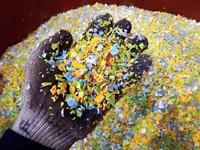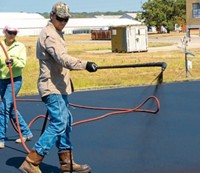Advertisement
Grab your lab coat. Let's get started
Welcome!
Welcome!
Create an account below to get 6 C&EN articles per month, receive newsletters and more - all free.
It seems this is your first time logging in online. Please enter the following information to continue.
As an ACS member you automatically get access to this site. All we need is few more details to create your reading experience.
Not you? Sign in with a different account.
Not you? Sign in with a different account.
ERROR 1
ERROR 1
ERROR 2
ERROR 2
ERROR 2
ERROR 2
ERROR 2
Password and Confirm password must match.
If you have an ACS member number, please enter it here so we can link this account to your membership. (optional)
ERROR 2
ACS values your privacy. By submitting your information, you are gaining access to C&EN and subscribing to our weekly newsletter. We use the information you provide to make your reading experience better, and we will never sell your data to third party members.
Environment
Washington Bans Coal Tar Sealants
Pollution: State is first to ban pavement coatings that contribute to contamination of waterways
by Cheryl Hogue
May 6, 2011
Washington has become the first state to ban pavement sealants that contain coal tar. The state made the move in response to recent studies that show runoff from macadam treated with these products can pollute lakes and streams.
On May 5, Gov. Christine Gregoire (D) signed into law legislation that will ban sales of coal tar-based pavement sealants in Washington starting on Jan. 1, 2012. The new statute also bars application of coal tar sealants in the state as of July 1, 2012.
Coal tar sealants contain polycyclic aromatic hydrocarbons (PAHs), a group of chemicals that are ubiquitous in the environment, especially in urban areas. PAHs can come from vehicle exhaust, particles worn off tires, and atmospheric deposition. PAHs are also found in crude oil, creosote, and roofing tar. Some, meanwhile, are used to manufacture pharmaceutical products, dyes, plastics, and pesticides.
NIH's National Toxicology Program classifies 15 PAHs as "reasonably anticipated to be human carcinogens" and says at least eight of these compounds are present in coal tar.
Researchers have demonstrated that parking lots coated with coal tar sealants can contribute significant amounts of PAHs to nearby water bodies, especially urban lakes (C&EN, Dec. 13, 2010, page 23). Precipitation runoff carries these pollutants into lakes and streams.
Sealants are used to protect asphalt from freeze-thaw cycles that can break up pavement in cold climates and to spruce up macadam's appearance. Asphalt-based sealants have a significantly lower content of PAHs than coal tar-based ones. Other pavement sealants claim to be free of these chemicals.
In 2006, Austin, Texas, became the first jurisdiction to ban coal-tar sealants (C&EN, Feb. 12, 2007, page 61).




Join the conversation
Contact the reporter
Submit a Letter to the Editor for publication
Engage with us on Twitter